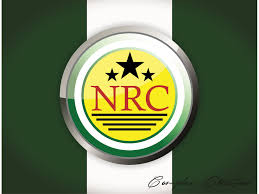
NRC To Begin Haulage Of Petroleum Products
The Nigerian Railway Corporation (NRC) will this week commence movement of petroleum products six years behind schedule.
Daily Trust learnt that the first trip for the haulage of the petroleum products will commence this week and the destination is Osun State. The NRC would be moving Automated Gas Oil (AGO), also known as diesel, to Dagbolu, a town near Oshogbo, the state capital, for a company said to be one out of many companies that have shown interest in the project.
In the heydays of the railway, movement of petroleum products formed a major part of freight movement.
In 2012, the Federal Government, through the Ministry of Transportation, moved to revive the system of petroleum haulage by procuring 40 pressurised tank wagons that can take 1.8 million litres of fuel per train.
The first 20 tank wagons at the cost of N600m, were delivered in February, 2012, the then Minister of Transportation, Sen. Idris Umar, said. The second batch of 20 tank wagons was delivered in 2013 and the haulage was expected to commence immediately thereafter.
Each of the tank wagons has the capacity to lift 45,000 litres of petroleum, implying that a train trip from the Apapa Port can lift as much as 1.8 million litres of petroleum products.
This will translate to taking about 55 tankers off the roads if the facilities are maximally put to use as each tanker will carry 33,000 litres of fuel.
Daily Trust learnt that since the tank wagons were procured, the NRC has only been using them for its in-house operations; moving only diesel meant to power its engines.
However, finally, there seems to be a light at the end of the tunnel as the corporation will this week commence movement of petroleum products for a third party company.
Train haulage: NRC in talks with oil marketers
It was gathered that discussions are ongoing between the Nigerian Railway Corporation (NRC) and members of the Major Oil Marketers Association of Nigeria (MOMAN) to convince the marketers to begin to take advantage of the facilities on ground to move their products to all parts of the country.
Confirming this development, the Railway District Manager, Lagos District, Engr. Jerry Oche, said more companies had shown interest in moving petroleum products by rail, while the one destined for Osun State would commence this week.
Engr. Oche said the NRC had addressed all safety concerns that the oil marketers might raise in bringing their products to the corporation for haulage to their different tank farms across the country.
“We have met with Oando several times. They too have been here to do inspection. Total has been here too,” he hinted.
On the schedule of the haulage, Engr. Oche said, “For now we are doing diesel, not Premium Motor Spirit (PMS); the risk with PMS is higher. For all our AGO trains, we have the runner wagons, between the locomotives and the first tank wagon.
“The runner wagon is always a flat wagon filled with sand or stone so that if the tanker catches fire, it won’t cross over to the locomotive and if the locomotive catches fire, it won’t cross over to the tanker.
“These tanks are pressurized; they are not the usual type of tank that would explode if they fall. You can run 24/7; whether night or day. If there is expansion, it takes off by itself. There is a releasing fab and it is completely sealed,” he explained the safety features that make it best for trains to convey petroleum products.
Daily Trust reported recently that in 2017, over 100 people were killed in infernos resulting from the explosion of petrol-bearing tankers on the highways. One of such occurred in October, 2018, at Tafa Town in Kaduna State where over 50 persons were injured and scores killed from an oil tanker explosion.
The railway manager said in recent times, cargo movement by rail had increased from Lagos to the far northern states conveying several items; including bounded and unbounded containers.
“For containers, we do like two trains. We have 20-feet containers, we have 40-feet. If we are doing 20-feet, each wagon is two. Each of our trains set is 19 wagons. So for 20-feet, we are thinking of 38 containers, while for 40-feet, we are thinking of 19.
“We handle imports and exports. Imports are the ones that are coming in and these could be manufactured products or products meant to be used by industries or companies,” he noted.
Source: DAILYTRUST
